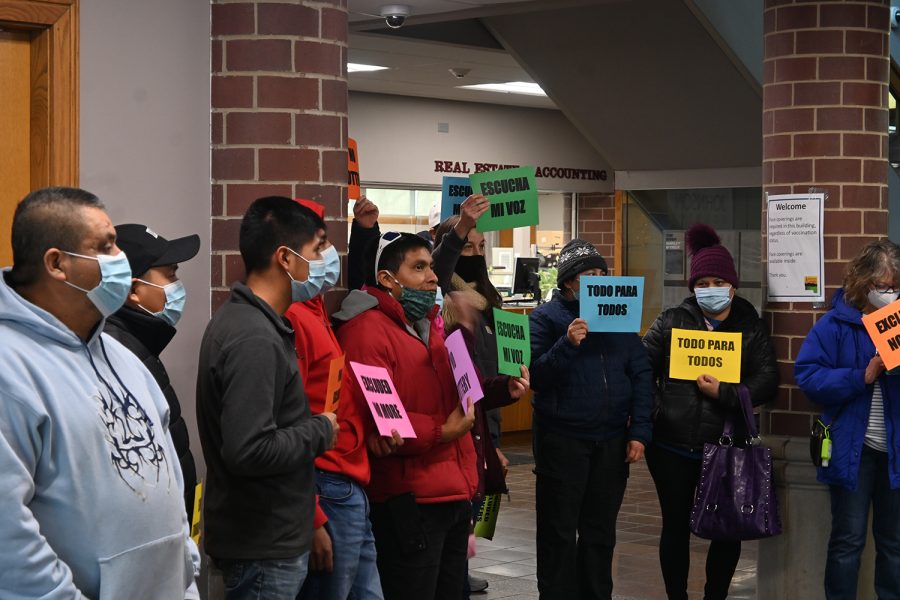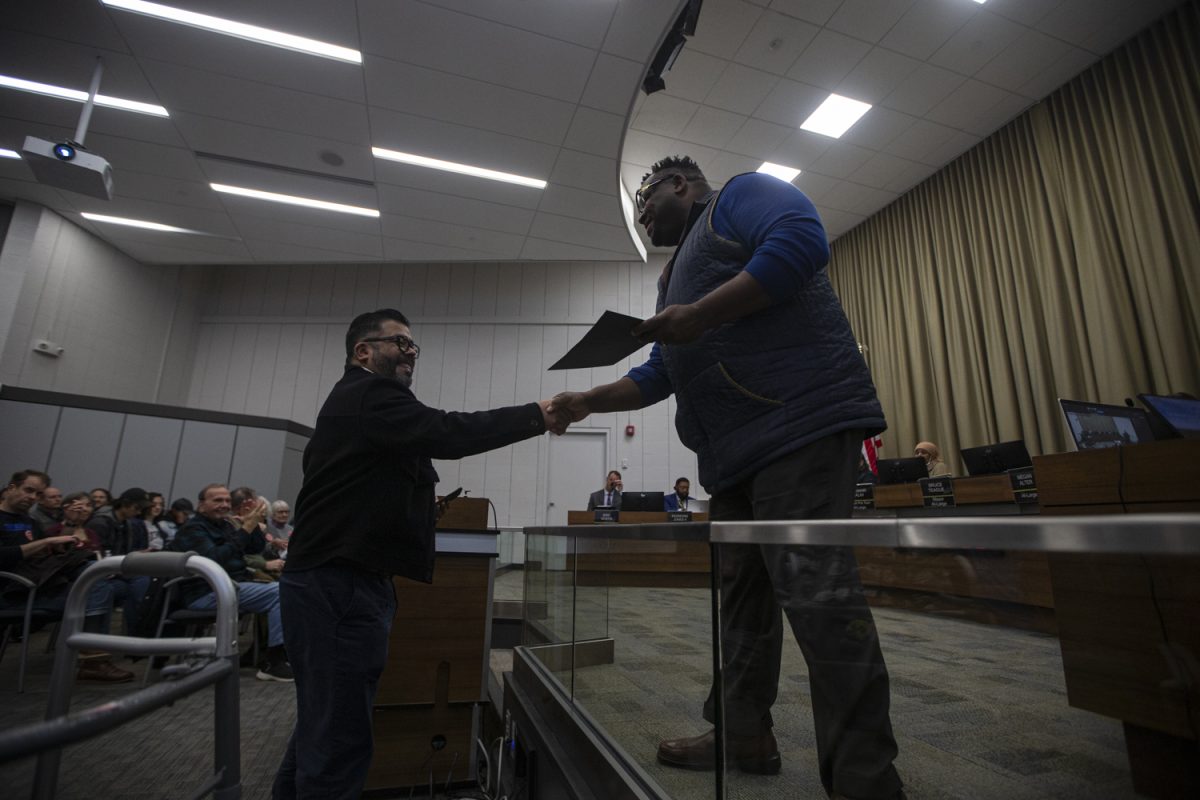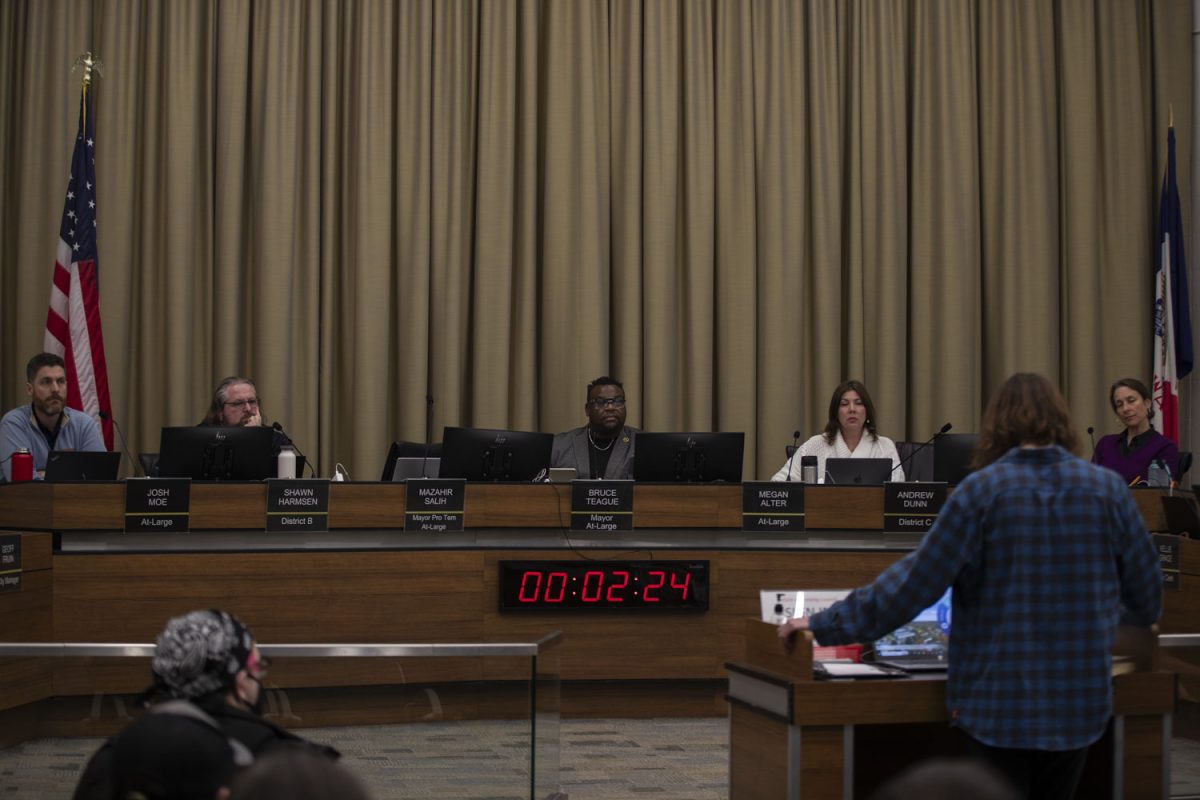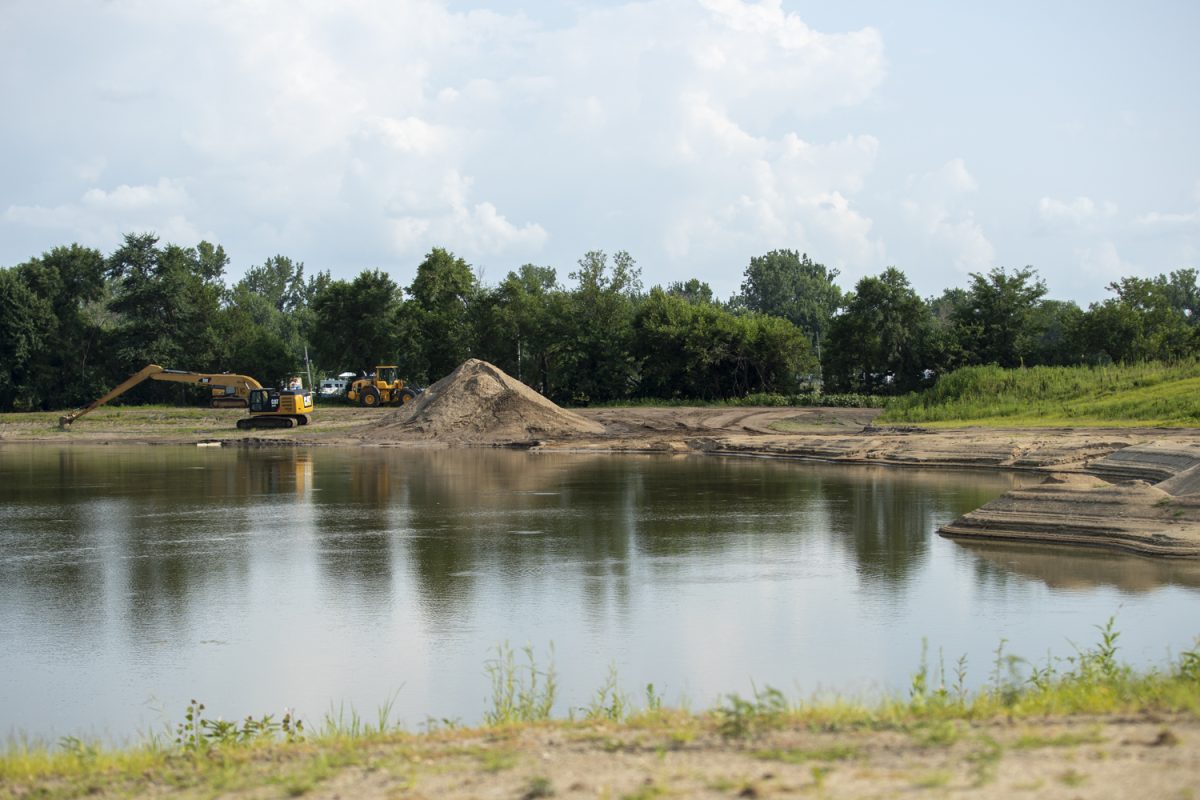A report by Escucha Mi Voz, an Iowa City immigrants’ rights group, found that more than a third of the nearly 500 immigrants and refugees surveyed in Johnson County live in multi-family households, and nearly all the households qualify as low-income.
The report, published March 8 with 481 respondents, revealed that immigrants and refugees face other income-related challenges, such as lack of health insurance and food access.
Escucha Mi Voz member Clinton Dimambu said the report aims to inform the Johnson County Board of Supervisors and the Iowa City City Council about the pressing challenges confronting immigrants and refugees. Manny Galvez, another Escucha Mi Voz member, said the report is important for highlighting critical health disparities, economic and social injustices, and the need for immigration reform.
Johnson County Supervisor Jon Green said he recognizes the difficulties that immigrants and refugees face in the community and that he is open to new policy ideas.
He said the COVID-19 relief funding from the American Rescue Plan Act, or ARPA, has helped the county gain the staff capacity, knowledge, and skill sets needed to further address these issues.
Green said beyond the money, which is $1.9 trillion for the nation and $29.3 million for Johnson County, ARPA is about challenging local governments to do things that they’re not accustomed to doing.
He said ARPA has empowered Johnson County to creatively address challenges, including those communities highlighted in the Escucha Mi Voz report.
“We are constrained in what we can do, but we’re also creative,” Green said, “Are we going to be able to solve the problem? Probably not, but I’ll be damned if we don’t try.”
The Center for Worker Justice and the Immigrant Welcome Network of Johnson County are two community-based organizations advocating for immigrants and refugees and trying to combat these issues.
Ayman Sharif, executive director of the Center for Worker Justice and Sudanese immigrant, is familiar with immigrant and refugee issues. Sharif said he often observes landlords withholding deposits or changing housing contracts without giving tenants notice, which can displace entire families.
Sharif said these issues can stem from the vulnerabilities of the immigrant and refugee community, such as language barriers or lack of knowledge about U.S. systems.
These same vulnerabilities are reportedly why employers take advantage of workers, which exacerbates the housing crisis, Sharif said.
Sharif’s solution to this problem is mobile home parks and strong regulations to protect them. He views mobile homes as vital affordable housing, but their acquisition by out-of-state companies has led to increased prices.
“We are as optimistic as we can be because there’s no other way for us to go,” Sharif said. “People need us to fight next to them, and we must continue doing that.”
Mazahir Salih, a Sudanese immigrant and Iowa City City Councilor, serves as executive director of the Immigrant Welcome Network of Johnson County. Salih said Escucha Mi Voz’s report did not shock Salih, who said she has observed similar issues for decades.
RELATED: Home to temporarily house refugees, immigrants opens in Iowa City
Salih said many families arrive in America with little money and are unable to find work due to language, cultural, and structural barriers. This is why many families find themselves in overcrowded households.
She said this stress is exacerbated by a lack of access to health care. Despite being eligible for Medicaid, many adults face a five-year wait, and purchasing health insurance simply isn’t feasible.
To combat these issues, a key priority is finding work, however, it is difficult for many immigrants to be hired, Salih said. She said simply having an accent makes finding work difficult.
“The problem is as soon as you have an accent, even if you speak English, by default, you are ‘stupid.’ Nobody will take you,” Salih said. “The solution has to be a community-driven solution because the people who are affected by the problem are the best people to give out a good solution.”












